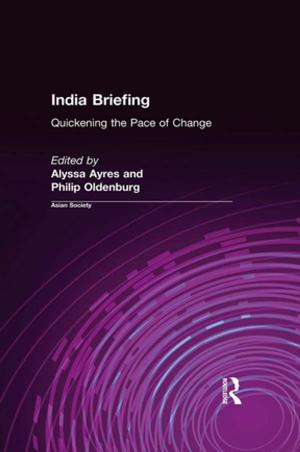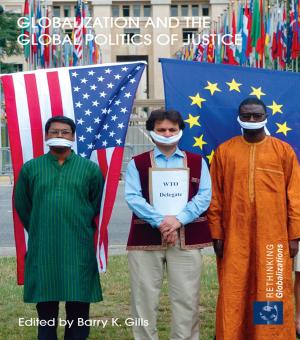| Author: | ISBN: | 9781351565448 | |
| Publisher: | Taylor and Francis | Publication: | July 5, 2017 |
| Imprint: | Routledge | Language: | English |
| Author: | |
| ISBN: | 9781351565448 |
| Publisher: | Taylor and Francis |
| Publication: | July 5, 2017 |
| Imprint: | Routledge |
| Language: | English |
Scholarly debate on the subject of global justice has been overwhelmingly focused so far on the socio-economic aspects of justice. Much less attention has been given to those political aspects of global justice concerned with arrangements for public decision-making and the collective exercise and control of power. This gap is not adequately filled by literatures on global democracy, either, since these do not incorporate sufficient analysis of whether the democratic institutions that deliver political justice within states can achieve the same result when dealing with the very different forms of power and political agency that structure the domain of global politics.
This collection brings together scholars from across the disciplines of political theory, normative ethics, and International Relations to undertake a fresh examination of some fundamental theoretical questions about the nature and significance of global political justice. Contributors tackle several dimensions of this complex theoretical topic, exploring questions about: the relationship of global political justice to other normative standards like ‘legitimacy’, ‘democracy’, and ‘socio-economic’ justice; the nature of global ‘public power’ and the prospects for global political community; the justice and continued significance of traditional ordering principles of sovereignty and territoriality; and the relevance of standards of political justice (like political equality) to the regulation of international violence and principles of just war.
This book was originally published as a special issue of Critical Review of International Social and Political Philosophy.
Scholarly debate on the subject of global justice has been overwhelmingly focused so far on the socio-economic aspects of justice. Much less attention has been given to those political aspects of global justice concerned with arrangements for public decision-making and the collective exercise and control of power. This gap is not adequately filled by literatures on global democracy, either, since these do not incorporate sufficient analysis of whether the democratic institutions that deliver political justice within states can achieve the same result when dealing with the very different forms of power and political agency that structure the domain of global politics.
This collection brings together scholars from across the disciplines of political theory, normative ethics, and International Relations to undertake a fresh examination of some fundamental theoretical questions about the nature and significance of global political justice. Contributors tackle several dimensions of this complex theoretical topic, exploring questions about: the relationship of global political justice to other normative standards like ‘legitimacy’, ‘democracy’, and ‘socio-economic’ justice; the nature of global ‘public power’ and the prospects for global political community; the justice and continued significance of traditional ordering principles of sovereignty and territoriality; and the relevance of standards of political justice (like political equality) to the regulation of international violence and principles of just war.
This book was originally published as a special issue of Critical Review of International Social and Political Philosophy.















